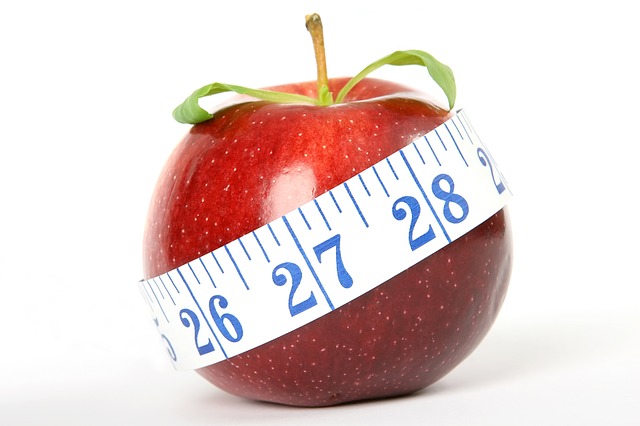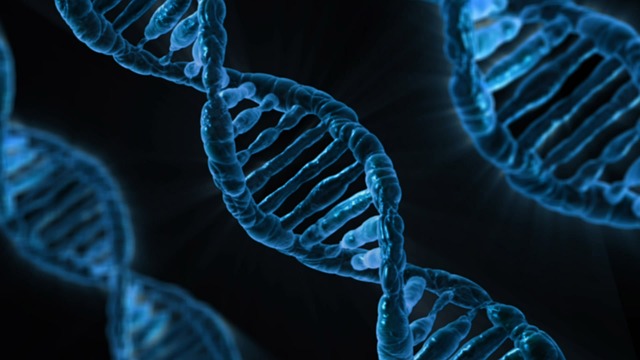The struggle to lose weight is real. While there are plenty of people who oversimplify the problem with the statement “calories in vs. calories out”. Those people are not only missing key components of weight loss in general and the fact that weight loss is multifactorial. There is no, one single thing that can be changed and result in weight loss of any note.
 The body’s own genes’ effect on weight loss cannot be overlooked and that is just one part of the equation. Our genes determine everything about us including the things that we have the power to change. We know that genes play a role in nearly everything about how our physical appearance turns out.
The body’s own genes’ effect on weight loss cannot be overlooked and that is just one part of the equation. Our genes determine everything about us including the things that we have the power to change. We know that genes play a role in nearly everything about how our physical appearance turns out.
For instance, genetics plays a role in how tall we have the potential to become. Other factors like nutrition, environment and even injuries can make us miss that potential and we end up shorter than possible. Part of a person’s weight is also determined by genetics as well. A person who is genetically predisposed to having a slower metabolism may have a harder time with weight loss.
Even when eating the exact same foods as the other people in the family. Remember, genetics can be very complex. While you get your genes from your parents, you may inherit a different combination of the genetic material they carry.
Some examples:
Fat metabolism: PPARG – Too much activation of PPARG can cause weight gain and increase the risk for heart disease, diabetes, and stroke. Obese individuals have much higher amounts of this protein in their fat tissue
Fat breakdown: ADRB2 – The adrenergic beta-2 surface receptor gene (ADRB2) codes for a protein that plays an important role in the breakdown of fat
Food Intake: FTO – It seems to regulate food intake and lower satiety. Scientists have found that people with certain variations in this gene have a higher BMI. Weight Loss is Multifactorial While the genes’ effect on weight loss is important, it is not the only thing that matters. There are other factors including:
- How much you eat.
- The types of food that you eat
- Exercise
- Sleep patterns
- Overall health
 Although calories in vs. calories out is too simple, the amount of foods and the types of foods that you are eating both are factors in weight loss. There are dozens of diet plans, some more extreme than others. The problem is that there is no one perfect diet that will work for everybody.
Although calories in vs. calories out is too simple, the amount of foods and the types of foods that you are eating both are factors in weight loss. There are dozens of diet plans, some more extreme than others. The problem is that there is no one perfect diet that will work for everybody.
Personal tastes, economic factors, availability of food options and even food allergies can all impact whether a diet plan is even feasible. Of course, there is also the ability to stick to a diet long enough to see any results. Exercise can be an important factor and one that is either overlooked or overstated. Movement is important but not the only thing that matters.
In fact, too much exercise could have the opposite effect on some people. It may lead to them putting on weight or from being so overly hungry that they overeat all of the time. Many people are unaware that a lack of sleep can make it more difficult to lose weight. Sleep deprivation can affect weight in a number of ways including:
- Slowing metabolism
- Making it easier to make poor food choices
- Putting your health at risk
Your overall health is going to play a role in your ability to lose weight. If you are sick, your body will focus energy on what you need to become well again. That may mean that other systems including metabolism may be slowed down until you are feeling better.
Some Genes have a Weight Loss Impact
 While you can change many things, you cannot change your actual genetics. You can learn about them and then devise plans to counteract some of the things that you predisposed to including weight gain or slow weight loss. Some of the genes may play a role in how your body handles the need for food and some direct how you might handle food once it is in your system.
While you can change many things, you cannot change your actual genetics. You can learn about them and then devise plans to counteract some of the things that you predisposed to including weight gain or slow weight loss. Some of the genes may play a role in how your body handles the need for food and some direct how you might handle food once it is in your system.
For instance, a certain gene may cause a person to overeat for two reasons. First, the person may feel overly hungry because of a faulty hunger trigger. Second, that person may not feel satisfied when they are technically full so they continue to eat. Not only must this person learn to regulate their eating, they must also learn to deal with the very triggers that make them eat too much in the first place.
Another genetic issue may impact how a certain protein reacts to fat in the body. The gene that controls that protein may be overactive causing it to create more and more fat cells which then grow in size. This typically is seen in people who gain weight in very specific areas.
What You Can Do Once you realize that weight loss and genetics are a complicated team, you can start to work toward a strategy. Genetic testing, which is simple, relatively inexpensive and available from a number of companies. You can get some vital information about your genetic makeup.
Testing can reveal things that could predispose you to certain diseases including obesity and others. It can also let you know what strategy might work best for you when trying to lose weight. Once you have this information, your next step should be to seek out a qualified nutritionist or weight loss specialist. From there you can create a doable plan for your weight loss. Set reasonable goals for yourself.
Sources:
Yoriko Heianza and Lu Qi, Gene-Diet Interaction and Precision Nutrition in Obesity, Int J Mol Sci. 2017 Apr; 18(4): 787.
Loos, R. and Yeo, G. “The bigger picture of FTO—the first GWAS-identified obesity gene.” Nat Rev Endocrinol, no. 10 (2014): 51-61.
Luan, J, et al. “Evidence for Gene-Nutrient Interaction at the PPARg Locus.” Diabetes 50, no. 3 (2001): 686-89.
CBS News 5, San Antonio, March 2018









